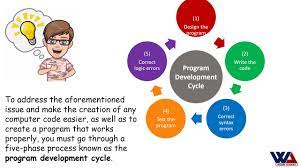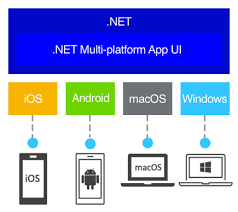Mastering Coding in Software Engineering: A Key to Success
The Importance of Coding in Software Engineering
Software engineering is a dynamic field that encompasses various processes involved in designing, developing, testing, and maintaining software applications. At the core of software engineering lies coding, which is the process of writing instructions for computers to execute.
Coding is essential in software engineering for several reasons:
Building Functional Software
Effective coding is crucial for building functional software that meets the requirements and expectations of users. Through coding, software engineers translate design concepts into tangible products that perform specific tasks efficiently.
Solving Complex Problems
Coding enables software engineers to solve complex problems by breaking them down into smaller, manageable components. By writing logical and structured code, engineers can create solutions that address intricate challenges in various domains.
Enhancing Efficiency and Performance
Well-written code plays a significant role in enhancing the efficiency and performance of software applications. Optimized code not only improves the speed and responsiveness of programs but also minimizes resource consumption, resulting in better user experiences.
Facilitating Collaboration
Coding serves as a common language that facilitates collaboration among software engineers working on the same project. By following coding standards and best practices, team members can understand and contribute to each other’s code effectively, leading to cohesive development efforts.
Enabling Innovation
Coding empowers software engineers to innovate and create groundbreaking solutions that push the boundaries of technology. By experimenting with new algorithms, frameworks, and methodologies, engineers can develop innovative software products that drive progress and change.
In conclusion, coding is a fundamental aspect of software engineering that underpins the creation of reliable, efficient, and innovative software applications. By mastering coding skills and adhering to best practices, software engineers can leverage the power of code to bring their ideas to life and make a positive impact on the world.
Top 5 Frequently Asked Questions About Coding in Software Engineering
- What programming languages are commonly used in software engineering?
- How important is coding in software development?
- What are the best practices for writing clean and efficient code?
- How can I improve my coding skills as a software engineer?
- What are some common challenges faced by software engineers when coding?
What programming languages are commonly used in software engineering?
In software engineering, several programming languages are commonly used to develop a wide range of applications and systems. Some of the popular programming languages include Java, Python, C++, C#, JavaScript, and Ruby. Each language has its strengths and is chosen based on the specific requirements of a project. Java is widely used for building enterprise-level applications, while Python is known for its simplicity and versatility in tasks like data analysis and machine learning. C++ is favored for system programming, C# for developing Windows applications, JavaScript for web development, and Ruby for rapid application development. Understanding the characteristics and capabilities of these programming languages is essential for software engineers to choose the most appropriate language for their projects.
How important is coding in software development?
Coding plays a pivotal role in software development, serving as the foundation upon which all digital solutions are built. The importance of coding in software engineering cannot be overstated, as it is the process through which developers translate design concepts into functional applications. Effective coding is essential for creating software that meets user requirements, solves complex problems, and delivers optimal performance. Without proficient coding skills, software development projects would struggle to progress and achieve their intended goals. In essence, coding is the backbone of software development, driving innovation and enabling engineers to transform ideas into tangible products that enhance our digital world.
What are the best practices for writing clean and efficient code?
When it comes to writing clean and efficient code in software engineering, adhering to best practices is essential for ensuring the quality and maintainability of the codebase. Some key recommendations include using meaningful variable names and comments to enhance code readability, following coding standards and conventions for consistency, breaking down complex tasks into smaller functions or modules for better organization, minimizing redundancy by reusing code snippets or functions, optimizing algorithms and data structures for improved performance, conducting thorough testing to identify and fix bugs early on, and continuously refactoring code to keep it concise and up-to-date. By incorporating these best practices into the coding process, software engineers can create high-quality software that is easier to understand, maintain, and scale.
How can I improve my coding skills as a software engineer?
To improve your coding skills as a software engineer, consistent practice and continuous learning are key. Engage in coding challenges, work on personal projects, and collaborate with peers to enhance your problem-solving abilities and expand your coding knowledge. Additionally, seek feedback on your code, analyze and refactor existing codebases, and stay updated on industry trends and best practices. Embrace new technologies, attend workshops or online courses, and participate in coding communities to gain insights from experienced professionals. Remember that improving coding skills is a journey that requires dedication, perseverance, and a willingness to adapt to new challenges.
What are some common challenges faced by software engineers when coding?
In the realm of software engineering, several common challenges often confront software engineers during the coding process. One prevalent issue is debugging, where identifying and fixing errors in the code can be time-consuming and complex. Additionally, managing code complexity poses a significant challenge, especially as projects grow in scale and scope. Collaboration and communication among team members can also be challenging, leading to potential conflicts or misunderstandings in code integration. Furthermore, staying updated with rapidly evolving technologies and frameworks presents a continuous challenge for software engineers striving to deliver cutting-edge solutions. Addressing these challenges requires a combination of technical expertise, problem-solving skills, effective teamwork, and a commitment to ongoing learning and improvement in the dynamic field of software engineering.











